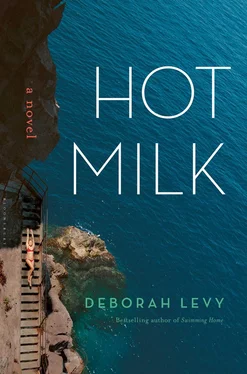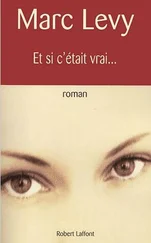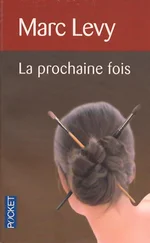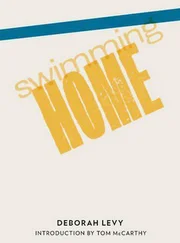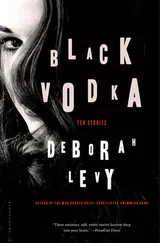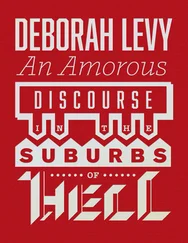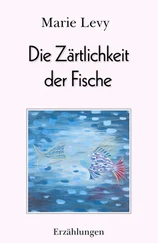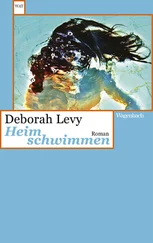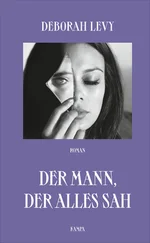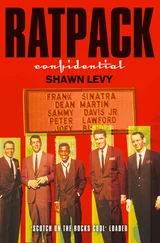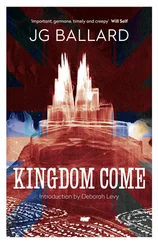I used to say to my classes that the ways to get insight are: to study infants; to study animals; to study primitive people; to be psychoanalysed; to have a religious conversion and get over it; to have a psychotic episode and get over it.
That evening I met Matthew, who was carrying a box of clothes from the vintage shop. He told me it was work for Ingrid to take home to Berlin and asked me if I had a message I would like him to give to her. It was as if I was forbidden to speak to her and could do so only through him.
I stood there in the fiercest late-August sun, sweating, freaked out.
What kind of message did I want to give Ingrid?
I let him wait.
‘By the way, Sophie, that bottle of wine you and Inge stole from my cellar? It’s a mid-range wine, worth about three hundred pounds. So I reckon you should pay half.’
His hands were full because of the box of clothes, so he waggled one of his white espadrilles in my direction for emphasis.
When I laughed I sounded monstrous to my own ears. ‘Tell her that Pablo’s dog is alive and free. He can swim because he has a sea past.’
‘What do you mean, a sea past?’
‘Someone must have trained him to swim when he was a puppy.’
‘You’re so insane, Sophie.’
Matthew walked towards me, struggling with the box, and kissed me on the cheek. I could tell that his body was cleverer than he was because I liked the feeling of him being close to me. I offered my other insane cheek to his insane lips.
It is 11 p.m. and I am naked again, but this time with Juan.
Our bodies are shaking. We are lying on a Turkish rug on the floor of the room he has rented while he has his summer job at the injury hut.
‘Sofia,’ he says, ‘I know your age and I know your country of origin. But I don’t know anything about your occupation.’
I like how he is not in love with me.
I like how I am not in love with him.
I like the yellow flesh of the two tiny wild pineapples he bought in the market.
He is kissing my shoulder. He knows I am reading an email from Alexandra.
He asks me to read it out loud.
It is written in Greek, so I will have to translate it into English.
Dear Sofia,
Your sister is missing you. A friend said to me that I have two daughters. I corrected her, no I have one, and she said, no you have two. She meant you. I regard you as a sister, but then I remembered it is my daughter who is your sister. Your papa has told me he will leave all our money to the church when he dies. I tell you this as a sister. Although I too have faith, I need to take care of my daughter, who is your sister too. You should know that I lost my job at the bank in Brussels. I am concerned that my two daughters, yes, one of them is you, and his wife, that is me, will be sacrificed to his god and we will lose our investments and our home. This is also to say I hope the health of your real mother is improving and that her legs are getting better.
Kind wishes to you, Sofia
Alexandra
He asks me to read it to him in Greek. ‘It is the right language to read that sort of email.’ He knows he is touching me somewhere that makes me tremble.
We discuss America. The country that gave a home to Claude Lévi-Strauss the anthropologist and to Levi Strauss & Co., the manufacturer of blue jeans, and which might also give me a temporary home to finish my doctorate. If its theme is memory, Juan wonders where will I begin and where I will end. While he takes the tiny sliver of glass out of the skin above my eyebrow, I confess that I am often lost in all the dimensions of time, that the past sometimes feels nearer than the present and I often fear the future has already happened.
The faux ancient Greek vase I smashed before I left for Athens is still lying in pieces on the table of the beach apartment. I wonder if I should attempt to put it together again. The seven female slaves collecting water by the fountain are shattered. Their slave bodies are broken, their heads cracked. I gaze at them for a long time and then decide not to restore them with putty and a paintbrush. Instead, I open a bottle of wine and drink it on the terrace.
‘Get me water, Sofia. Water that is not cold.’
I am a female slave and a female wine drinker.
I bring my mother water that has been boiled in the kettle but has not been chilled in the fridge. It is still the wrong sort of water. I am learning that there are more acceptable shades of wrong. I no longer speak to her. The news of her wish for the amputation has shocked me to the core. She has forsaken her right to any kind of conversation with me because she has replaced words with the surgeon’s knife. I cannot live with the violence of her intention or her imagination. In fact, I’m not sure what kind of reality I am living in right now. I don’t know what is real. In this sense my own feet are not firmly touching the ground. I no longer have a grip. My mother has abdicated, resigned, relinquished, declined, waived, disclaimed everything and she has taken me down with her. My love for her is like an axe. She has grabbed it from me and is threatening to chop off her feet.
It is also true that this threat of hers, the severing of her limbs, has galvanized me. I am discovering that sleep is for happier people. I am awake all night making my application to complete my doctorate in America. I want to be as far away from Rose as possible. Last night I hammered the keyboard and the sentences found their shape on the shattered digital page under the desert stars. I watched the sun rise. It slips backwards and forwards across the sky but it is the Earth that is moving around the sun, tipping, spinning.
I am spinning with it and I am pressing Send.
I dreamed again of the Greek girl. We are lying on a beach and I put my hand on her breast. We both fall asleep. When she wakes up she shouts, LOOK! She is pointing to the print of my hand. It leaves a white tattoo on her skin where everything is brown. She says, I will wear the print of your monster claws on my body to frighten my enemies.
The senior executive from the pharmaceutical company and the health official from Barcelona were seated on hard wooden chairs below the vervet perched in Gómez’s consulting room. One was gaunt with close-cut silver hair. His colleague was plumper with flabby cheeks, thinning black hair greased over his scalp and small wet lips.
The gaunt executive fidgeted with a golf ball in his right hand, tapping it with his thumb, sometimes throwing it a few inches in the air then catching it again. Gómez stood in front of his desk and Julieta perched on it, her legs crossed under what looked like a brand-new, white clinician’s coat. My mother sat regally in her wheelchair and I was standing by her side.
Gómez gestured towards the two men. ‘Please, may I introduce Mr James from Los Angeles.’ He pointed to the gaunt, silver-haired man. ‘And Señor Covarrubias from Barcelona.’
He waved his hand in my mother’s direction. ‘This is my patient Mrs Papastergiadis and her daughter, Sofia Irina.’
The plump official smiled flirtatiously at my mother. ‘I hope you are comfortable today,’ he said.
‘It’s nice to be out and about,’ she replied.
Mr James threw up his golf ball and caught it again.
‘So, please. How can I help you?’ Gómez’s tone was polite but abrupt.
Mr James from Los Angeles leaned forward and attempted to make eye contact with my mother. The first difficulty he had to overcome was pronouncing her surname. He came up with something that was not, strictly speaking, the name of the person he was referring to. ‘I believe that you were admitted into the clinic for two nights. Could you tell us more about this?’
Читать дальше
